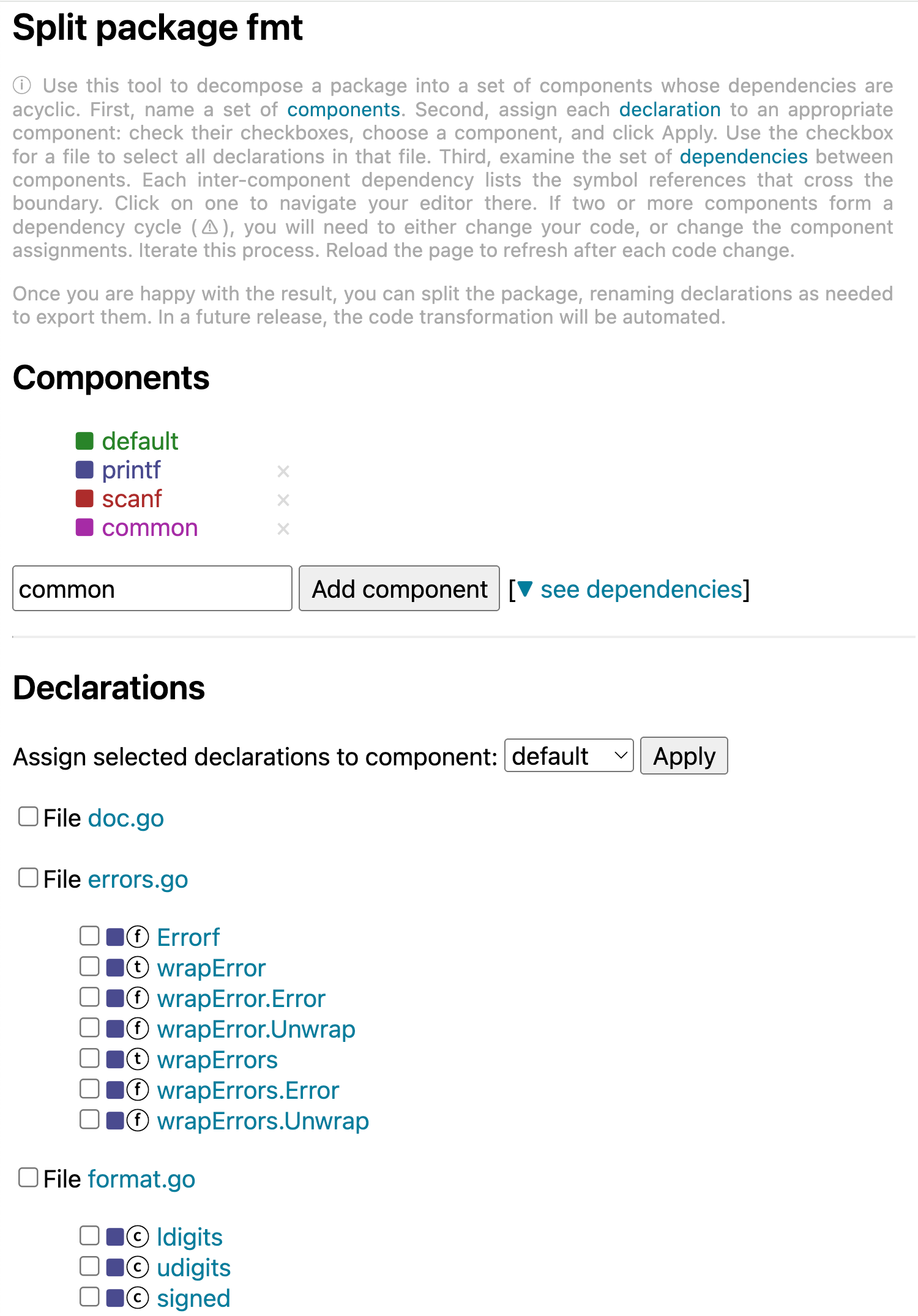Gopls release v0.20.0 (forthcoming)
This release contains a new experimental Model Context Protocol server for gopls, which may be used to integrate a subset of gopls’ features in AI-assisted environments.
Additionally, gopls’ documentation is now available on the Go project’s website at https://go.dev/gopls. (Note: this link will not be accurate until the completion of the release. Dueing the pre-release period, please use https://tip.golang.org/gopls, which reflects the latest commit.)
Unlike markdown files in GitHub, these pages are crawled by Google’s web search index.
Configuration Changes
Web-based features
“Split package” tool
The source.splitPackage code action opens a web-based tool that
helps you split a package into two or more components whose
dependencies are acyclic.
To use it, name a set of components, assign each declaration to a component, then visualize the dependencies among the components (including whether they form a cycle). Refresh the page each time you edit your code to see the latest information.

The tool makes it easy to iterate over potential decompositions until you find one you are happy with. A future version of the tool will automate the code transformation, but for now you must do that step by hand.
Editing features
Model Context Protocol server
Gopls now includes an experimental built-in server for the Model Context Protocol (MCP), allowing it to expose a subset of its functionality to AI assistants in the form of MCP tools.
See the documentation for more information.
Caveats: This is a brand new mode of operation for gopls, and so we’re still experimenting with the best set of tools and instructions to provide. Please let us know how well it works for you. Also, please be aware that using gopls in an AI powered environment may carry additional security considerations, as discussed in the documentation above.
Analysis features
ignoredError inlay hint
The new ignoredError inlay hint helps catch mistakenly discarded
errors. It inserts an // ignore error hint following any statement
that is a function call whose error result is implicitly ignored. For
example, this code:
f.Close()
will appear as:
f.Close() // ignore error
To suppress the hint, write an actual comment containing ignore error following the call statement, or explictly assign the result
to a blank _ variable. A handful of common functions such as
fmt.Println are excluded from the check.
Enable it using this configuration: {"hints": {"ignoredError": true}}.
unusedfunc reports unused type, var, and const declarations too
The unusedfunc analyzer now reports any unexported types, variables, and constants that are unreferenced within their declaring package. (The problem of unreferenced exported symbols can’t be expressed in the analysis framework since it depends on the entire workspace.)
Code transformation features
The source files for this documentation can be found beneath golang.org/x/tools/gopls/doc.